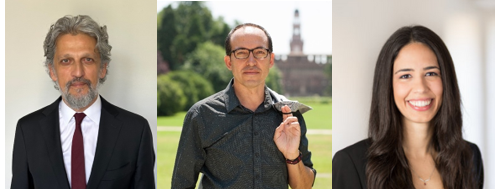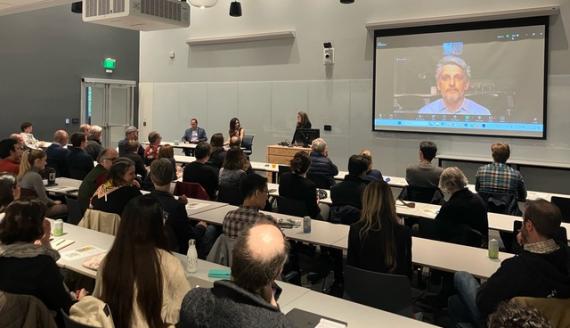Big questions in comparative politics usually revolve around democratization, economic development, democratic backsliding, populism, religion in politics, military involvement in politics, ethnic conflict, and state- and nation-building in post-imperial settings. Few countries bring all these themes together at once. Turkey is the rare place where every one of these questions is on the table. It is, in many ways, a living laboratory for studying both comparative politics and international relations. On top of that, Turkey has been one of the United States’ most important allies in the Middle East since the Cold War. Given this combination of scholarly richness and strategic relevance, it is surprising how few universities in the U.S. have deep expertise in Turkish politics or offer courses that explore its long and complex political history and present.

With direction from Professor Asli Cansunar, the political science department works to build a community of faculty, graduate students, and undergraduates engaged in Turkey’s past and present. We are the only political science department in the U.S. that offers a specialized undergraduate-level course on Turkish politics. Our members examine Ottoman institutions, analyze petitions and elections of the early Republic, and investigate contemporary dynamics like polarization, democratic backsliding, and the politics of soccer and conflict.
Commitment to Public Engagement and Events

The group is also committed to public engagement, hosting lectures, panels, and cultural events that bring Turkish politics to a wider audience. One example is Unbowed and Unbroken: The Battle for Civil Liberties and Minority Rights in Turkey, which brought together former Member of Parliament and human rights defender Garo Paylan and award-winning novelist Burhan Sönmez. The event drew more than 80 attendees from across campus and the broader Seattle community. Paylan -- one of the few Armenian members of parliament in Turkish history, who represented both Istanbul and Diyarbakır from 2015 to 2023-- has been internationally recognized for his defense of democracy and minority rights. Sönmez, president of PEN International and the author of six novels translated into nearly fifty languages, spoke about the intersection of literature, politics, and exile. Co-sponsored with UW’s Middle Eastern Languages and Cultures Department and the Turkish-Ottoman Studies Program, the event underscored the strong interest in Turkey’s politics and society.
Our efforts have also attracted press attention. I was recently quoted in the Turkish news site Bianet (The Independent Communication Network) in an article highlighting UW’s growing focus on Turkish Politics. The piece noted that our department has made significant investments in this field -- welcoming a Turkish PhD student last year, with plans to bring two more students this year. As I said in the interview, “Our goal is to continue these efforts by making a long-term investment in recruiting doctoral students, fostering a dynamic synergy of research and knowledge-sharing among academics and students focused on Turkish politics. We believe that the active involvement of the Turkish community in the Pacific Northwest will further enrich this initiative.”
Our research group reflects what our department does best: bringing people together to tackle big questions. By studying Turkish politics in all its complexity, we not only shed light on one country’s history and present but also contribute to broader debates about democracy. Because, unfortunately, learning an autocrat’s playbook can come in handy -- even at times and in places where you might least expect it.